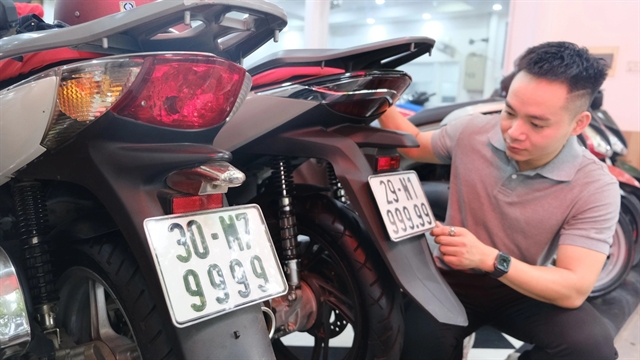 |
| Income from buying and selling vehicle licence plates is soon to be subject to taxation. — Photo thanhnien.vn |
The rise of the digital economy and new forms of assets such as tokenised property, domain names, and auctioned vehicle licence plates is prompting Việt Nam to improve its Personal Income Tax (PIT) framework.
In the draft amended Law on PIT, the Ministry of Finance has proposed expanding the list of taxable incomes beyond the 10 categories currently stipulated in existing legislation.
The ministry recommends adding a new group called 'other income' which includes: transfer of '.vn' national domain names; transfer of carbon credits, carbon offsets and green bonds; transfer of car licence plates won via auctions (including those already affixed to vehicles); transfer of digital assets such as virtual property and tokenised assets; and income from the use, ownership or transfer of other types of property as defined by the Government.
For these income sources, if arising from individual transactions, tax will be imposed at a rate of 5 per cent on the portion exceeding VNĐ10 million (US$382). However, for digital asset transfers conducted via transparent exchanges with public price listings and frequent trading activity, a flat tax rate of 0.1 per cent per transaction will apply, similar to that imposed on securities.
The draft law also clarifies and broadens the components within each existing income group. Business income will now cover e-commerce activities, digital platform operations, licensed professions and brokerage services. The group of wage and salary income is expanded with specific guidance on which allowances and subsidies are exempt from tax under legal provisions or specific Government regulations.
According to the Ministry of Finance, this amendment aims to ensure fairness in tax obligations between traditional income groups and emerging sources of income, while aligning with practical realities, international integration trends, and the digital transformation of the economy. — VNS